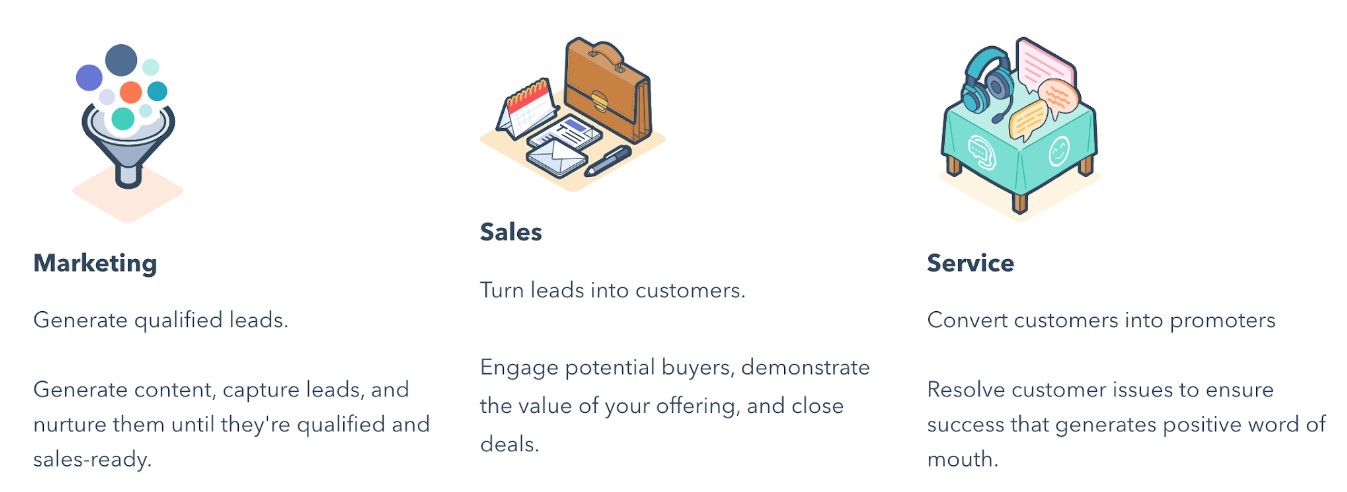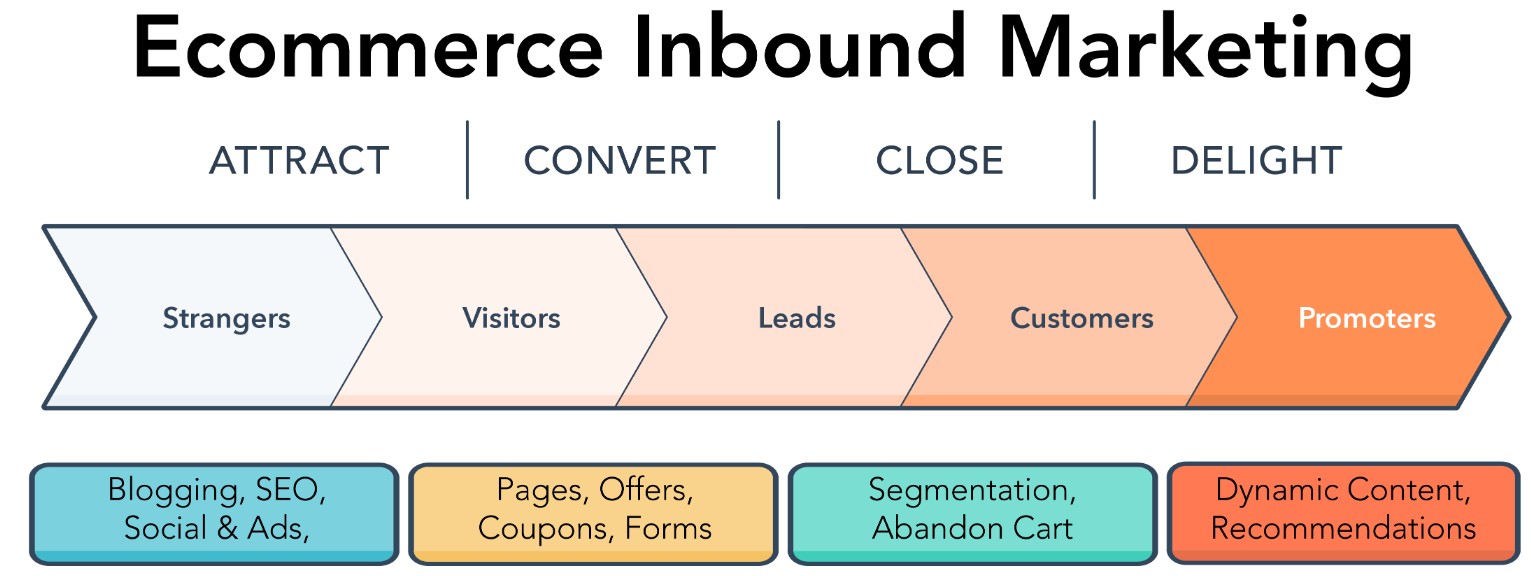As a B2B manufacturing company are your marketing, sales, and service functions integrated and automated? An effective CRM increases sales revenue because it:
- stores data in a single location
- automates marketing functions
- nurtures leads
At the same time, it reduces the work on the teams and allows their time to be used more efficiently.
Looking for the top CRM companies in the manufacturing industry?
HubSpot leads the way as a complete tool because companies that use it find that it attracts leads, engages prospects and delights customers, and is easily integrated with e-commerce platforms.

1. Attract B2B Traffic
The best marketing strategies for manufacturing companies revolve around digital advertising and inbound marketing and a CRM to track the effectiveness of both will guide marketers in setting the campaign strategy. HubSpot tracks lead sources and measures the effectiveness of marketing efforts so the most successful tactics can be repeated and others can be modified as needed.
2. Engage B2B Buyers
B2B organizations typically have longer sales cycles that require a trusting relationship between companies. A CRM can automate administrative tasks to nurture these leads and assign tasks to members of the sales team to ensure opportunities to connect with prospects are never overlooked.
Email Templates - convert your best sales emails into templates that can be personalized, optimized, and shared with the team
Email Tracking - Know when a lead opens an email and follow up at the right time to close deals faster
Document Management & Tracking - Build a library of helpful sales content and share it through Gmail or Outlook and see which content resonates best and build on that.
Conversation Intelligence - Automatically capture call details and unlock coaching opportunities with AI-powered insights
Call Tracking - Prioritize your day’s sales calls. Make, record, and automatically log calls in the CRM for maximum efficiency
Sales Automation - Set up a series of automated, personalized emails and follow-up tasks to stay top of mind throughout the sales process.
Use the CRM to engage website visitors with chat, discounts on first orders, and valuable information that helps them in the buyer’s journey.
Integrate the CRM with the eCommerce platform
If the B2B organization uses e-commerce then keeping the CRM current with online purchases is vital. Top CRM companies like HubSpot integrate platforms such as Shopify, WooCommerce, or an API integration to connect any online store for easy data tracking that demonstrates which marketing campaigns drive sales and revenue.

3. Delight Customers
Once someone becomes a customer, keep delighting that buyer to increase their lifetime value and make the most out of the investment to attract them in the first place. Shopify lists 7 ways to increase business from repeat buyers:
- Reward customers for repeat purchases
- Focus on customer service
- Offer incentives to repeat customers
- Act on customer feedback
- Use email to stay top-of-mind
- Review customer data
- Build customer experiences
Nurturing existing customers and motivating them to return increases the lifetime value of the customer and it also attracts new leads as they share their positive experiences with other prospective clients.
Is the investment in HubSpot worth it for manufacturers?
Curious if HubSpot can deliver a positive ROI at your B2B company? Try the HubSpot ROI Calculator to see the aggregate results it has returned for thousands of global customers.
Additional Resources
Manufacturing Marketing Agency Tools






Agree, disagree, or just have something to add?
Leave a comment below.